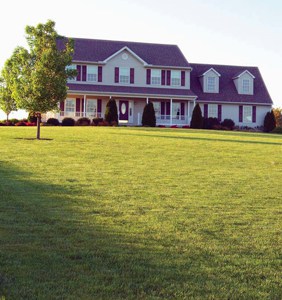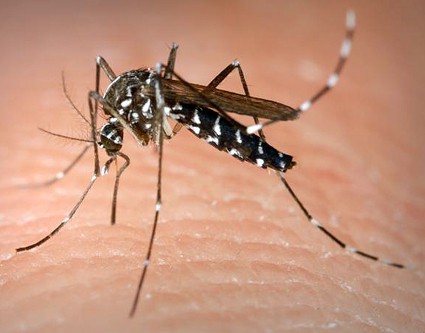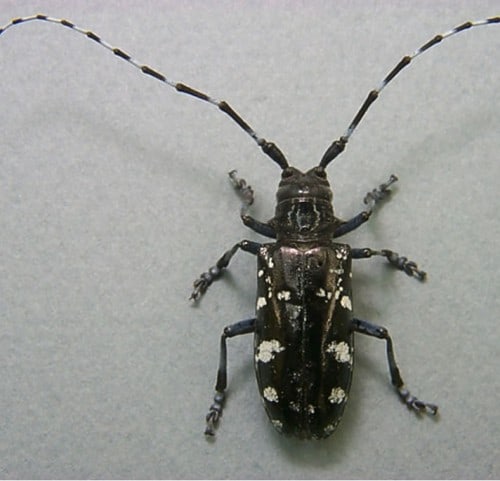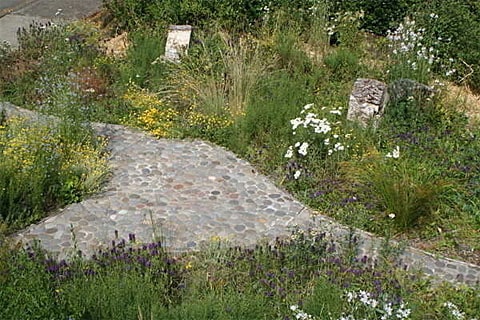Eco Brooklyn is expanding into natural landscape design and ecological pools. In this process I have been reading a lot and hiring new employees knowledgeable in this field.
One book I have found very helpful is Bringing Nature Home: How You Can Sustain Wildlife with Native Plants by Douglas W. Tallamy. It is a must read for anyone with a garden as well as any Brooklyn landscaping company interested in creating ecological oases for Brooklyn back yards.
He makes several powerful points that can help everyone of us make an impact on improving our local and global ecosystem.
His main point is that we need to increase the amount of insects in our garden through the planting of native plants because an abundant and diverse insect life are the corner stone of a healthy world. He points out that native insects can only survive on native plants. Without insects our whole ecosystem in in jeopardy and he also points out the sobering facts behind what has already happened in that area.
If you ever wondered why it is so important to only have native plants in your garden (and it is vitally important) then you need to read this book.
He shows in clear language how non native plants are usually imported by stores because they are hardy, grow quickly and are insect resistant: these combinations are a great money maker for the suburban plant store.
But it is also a tragedy for the natural landscape. These hardy, insect resistant plants quickly overtake the local habitat, creating a mono-culture environment. This new environment offers no place for the diverse world of insects and small animals require a varied plant world that match their evolutionary history.
If the insects don’t have this they die out and so do the animals who feed off them. The consequences are far reaching, effecting our water, air and overall global health.
Native plants are the key to this formula and our introduction of alien decorative plants is the tragedy.
The NY Times review put it another way: To Feed the Birds, First Feed the Bugs.
Your typical US garden, although appearing green, is an ecological void. Like the image below it is a mono culture with one or two decorative trees or plants, none of which offer meaningful food or shelter to bugs and animals. The lawn is a vast area of chemicals and violent lawn mowers. The trees are imported and inedible to local insects and uninhabitable to local animals. You might as well pour concrete over the whole thing and make money using the space as a parking lot.
A native garden on the other hand has plants that the bugs have interacted with for millennium. Unlike imported plants, the insects and native plants have evolved over time to create a harmonious relationship where both feed each other. Together they grow and flourish, each one a check and balance to the other. Not one overtakes the other.
In a non native world you don’t have these checks and balances and things get extreme. Without balance there is no life.
Either the plants and animals die out because they don’t have the support system. For example the plant may not have the right insect to help aerate the soil. Thus without chemical fertilizer the plant can not survive.
On the other end of the extreme spectrum the plant or insect may not have the counter balance to keep it in check. The plant may not have the right insect to eat it and the plant takes over the whole countryside, killing other plants and insects in its way.
Or a plant may bring with it an insect from overseas that lands in a world where it has no predators. The insect devours the local plants and grows out of control.
One point that comes to mind for me in Brooklyn is the mosquito problem. Brooklyn is infested by mosquitoes. You can’t sit on your stoop in the evening without being eaten alive. And it isn’t just any mosquito. It is a certain strain of mosquito that came from Asia as a stowaway in the big tankers. They trace it back to a shipment that arrived in Texas in 1985. Since then it has spread across the country, especially in the North East.
Without local predators the mosquito has grown out of control. As a Brooklyn based eco landscaper I think building gardens that are full of insects can help the problem. Praying Mantis, birds, frogs, bats, dragon flies, guppy fish are all abundant in an ecological Brooklyn garden. And they all feast on mosquitoes.
That is the irony that Tallany points out in his book: that creating more insects in your garden REDUCES your insect problems. Because an insect problem is caused when there is no diversity and one species gets out of hand. If you have diversity you have checks and balances and not one gets too big before it becomes a feast for another.
Your local lawn store is full of toxic chemicals to help you keep these rogue plants and insects at bay but the chemicals cause their own set of disasters. An ecological garden has no need for any fertilizer or chemicals.
Unfortunately most Brooklyn gardens are not ecological. They may not be a toxic suburban lawn. New Yorkers don’t have the time to keep lawns.
Your typical Brooklyn back yard has a couple sorry looking imported decorative plants, an alien weed that has grown so big it looks like a tree, a patch of concrete, and threadbare soil that spends most of the year as brackish mud for mosquitoes to breed in. Despite being called a garden it fosters no life beyond one or two passing squirrels and the neighbors cat.
It is the perfect world for the Asian Tiger mosquito and the other alien destroyer, the Asian Longhorn beetle that is quickly destroying native trees.
The solution, and what Eco Brooklyn aims to do with the ecological landscaping service, is to be the wise keeper of your garden. Like the wisdom of making communities self sufficient by “teaching them to fish instead of giving them fish” you create a garden that has all the internal checks and balances needed for it to flourish without human manipulation.
In fact if you do it right you create a garden that grows beyond anything you could ever design. You create an oasis for migrating butterflies and birds. The garden has homes for local animals and a diverse insect life that keeps the plants healthy and the environment beautiful.
For example instead of a lawn that is completely unsustainable you could plant a meadow like the one below. It requires no chemicals, no watering and hardly any maintenance. Yet it is arguably more beautiful, just as accessible and full of wildlife that feeds the world. Unlike your typical Brooklyn yard, the plans allow the water to drain. The garden comes back year after year without barely any input from the gardener. For the harried New Yorker who barely has time to feed their cat, this kind of lawn is pure magic.
Despite the myriad of great points Tallamy writes about, the most powerful point for me was actually not his main point. He mentions almost in passion. He writes:
For the first time in its history, gardening has taken on a role that transcends the needs of the gardener. Like it or not, gardeners have become important players in the management of our nations wildlife. It is now withing the power of the individual gardeners to do something that we all dream of doing: to make a difference. In this case, the “difference” will be to the future of biodiversity, to the native plants and animals of North America and the ecosystems that sustain them.
The reason this resonates so powerfully for me is that I see the same awareness happening in green building. A green builder does not simply build a house. We understand that we are important players in the management of our nations resources. And it is not just gardeners and green builders. No matter who you are or what you do, there is a growing awareness that our actions transcend our immediate needs.
We are realizing what has always been true and in our ignorance we did not see it: our actions are bigger than ourselves. Through a lack of self worth or through self centeredness, like children we focused on our immediate wants without realizing it’s effects on the entire world.
But as Tallany points out, we all make a difference whether we want to or not. We are all political, social activists regardless of our intentions. The mere act of living effects the world in so many ways we have no idea.
And with this awareness we are increasingly approaching our careers, our relationships and our neighborhood. Green builders and eco gardeners are leading the way in this new awareness.
As Eco Brooklyn expands into building ecological gardens for local New York home owners we see our service as vitally important because we understand the power of a plant. It is not just a green thing in a pot. It is a future ecosystem that will keep on growing and effecting our lives long after we collect our check and move on to the next garden.
An ecological garden positively impacts the whole block. Less mosquitoes for you means less for the neighbor. More oxygen from your garden means less pollution for the whole street. No chemicals on your plants means no chemicals for the houses down stream.
This awareness is powerful stuff. It is also very empowering.





